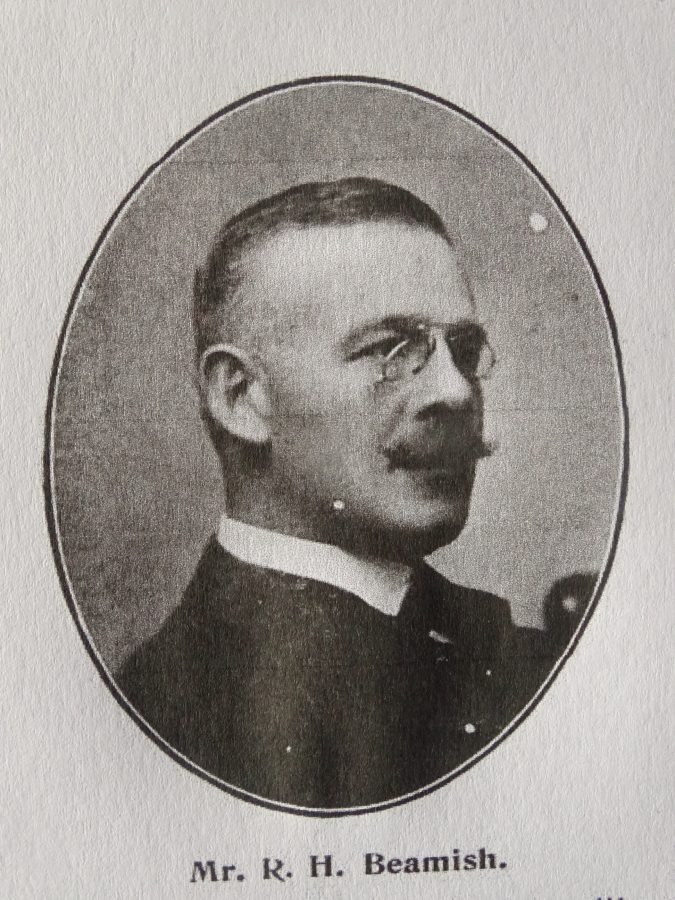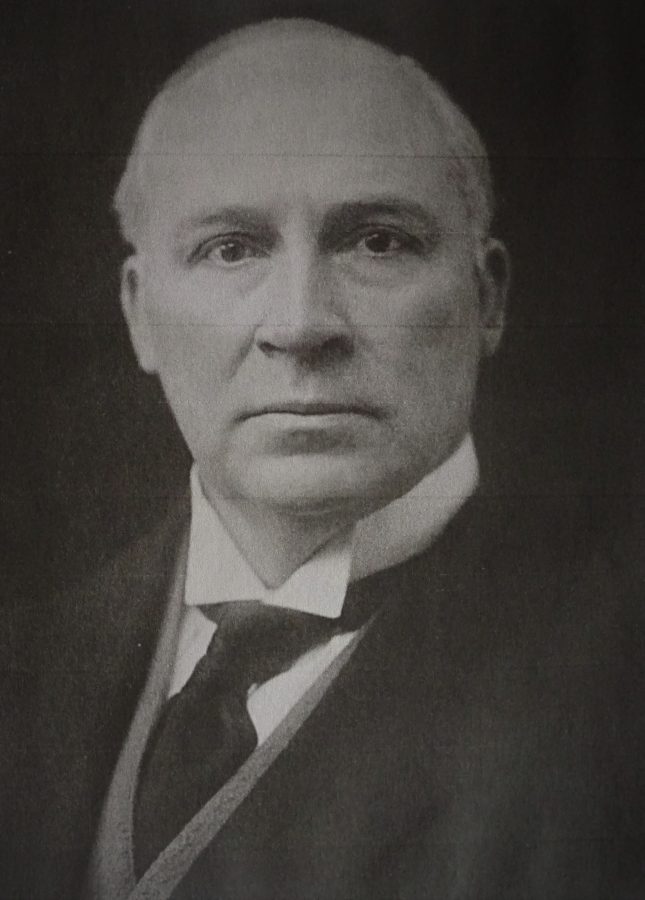
1060a. Richard H Beamish c.1910 from Pike’s Contemporary Biographies, 1911 (source: Cork City Library).
Kieran’s Our City, Our Town Article,
Cork Independent, 6 August 2020
Remembering 1920: A Deputation to Westminster
In the midst of curfews being implemented and Black and Tans patrols across Cork City Centre streets, on 3 August 1920, a large meeting of the professional and commercial, both Protestant and Roman Catholic merchants, who supported Home Rule was held at the Imperial Hotel on the South Mall. Their intention was to send a delegation to meet British Prime Minister Lloyd George.
At the meeting, Alderman Richard Henrik Beamish was appointed to take the chair. Richard was an experienced and respected Protestant businessman. In reviewing his contributions in the press over the previous decade, he was not an overtly political player and was more known for his brewery and employment connections as well his acute interest in horticulture. Richard succeeded to the chairmanship of his firm Beamish and Crawford in 1899. His family held the uninterrupted chairmanship of the firm from its foundation, in the eighteenth century, up to the early twentieth century. During his term of office, Richard helped absorb the three firms of Lane & Company of Cork, Allman & Company of Bandon and the Bandon and Dungarvan Brewery into Beamish and Crawford.
In his earlier years Richard studied agriculture in Sweden and back home years later he acted for years as a Governor of the Munster Institute. He also wrote essays upon the winter feeding of cows and the water contents ofbutter. His beautiful gardens at Ashbourne, Glountane were well known throughout Britain as having a unique collection of rare trees, shrubs and plants gathered by him over many years from all parts of the world, varying in climates from Lapland to Mexico. His small home farm included a herd of Kerry cattle, remarkable for their yield of milk and the purity of their breed.
For years Richard occupied the position of Alderman of the Old pre 1920 Cork Corporation. He was elected twice as High Sheriff of the City. He was created a Deputy Lieutenant of the City and served as Justice of the Peace. In the year 1918 he was created a Freeman of London. In January 1920, Richard ran on the city’s commercial panel and topped the poll in the centre ward.
In his opening remarks at the Imperial Hotel on 3 August 1920, Richard Beamish said that the “unprecedented and serious state of the country” had caused their meeting assembly to declare their Dominion Home Rule policy. Richard began by noting that Ireland had never perhaps been placed in the position of greater agricultural and commercial prosperity than at that time. He noted: “it is equally clear that the universal feeling and demand for self-government has never been stronger throughout the country than it now is. There appears to exist an unwavering determination by the Irish nation to insist upon the direction of its own affairs, coupled with the desire to raise and employ the money of our country in accordance with its wishes…A complete Dominion status, with full powers to raise and disburse the country’s revenue is our essential demand, and were this granted it will be found that the income raised and devoted to Ireland, chocked by means of an assembly of Irishmen of all creeds and classes, would rapidly develop our Irish resources, and raise the status of our country to a level hitherto unthought of”.
Richard Beamish spoke for over 45 minutes reiterating his key points and then called upon Cork Fine Chemicals merchant Sir Stanley Harrington to formally propose the resolution to be sent to Westminster on self-government. Those present unanimously agreed to the motion plus several wished to send a physical delegation to wait on the Prime Minster. This was agreed to. The eventual delegation listed was Alderman Richard H Beamish, Mr J Dinan, Mr Benjamin Haughton, and Mr Thomas Jennings, all from Cork and neighbourhood, Sir Thomas Callan McArdl from, Dundalk, Mr James Shanks from Dublin, Professor Trench from Trinity College Dublin as well as Mr Braham Sutton, Mr Andrew Jameson and Captain Henry Harrison.
In a very quick turnaround and travel agenda, the deputation was received the following day on 4 August 1920 by David Lloyd George at Westminster in London, who was accompanied by the Chief Secretary Sir Henry Greenwood and parliamentary Coalition leaders. Two hours’ conversation on the Irish position followed, in which the Dominion solution was pressed on the Government. According to news agencies in London the deputation say that they were heard with “patience, courtesy and apparent sympathy”. They felt very satisfied with their interview. After a prolonged talk the members of the deputation were invited to return at 5pm for a further talk with representatives of the government. They were met by, Chief Secretary of Ireland Mr Hamar Greenwood, who was Home Rule sympathiser but was also trying to maintain control of his Black and Tan soldier unit.
At the close of these discussions Mr Lloyd George made a public statement and stated that he was open to other delegations calling for resolutions and for peace. The Cork deputation in their own way created an early stepping stone in a long path to a truce in the Irish War of Independence. A further meeting on 24 August was attended by commercial and industrial representatives from all parts of Ireland.
Kieran’s new book Witness to Murder, The Inquest of Tomás MacCurtain is now available to purchase online (co-authored with John O’Mahony 2020, Irish Examiner/www.examiner.ie).
Captions:
1060a. Richard H Beamish c.1910 from Pike’s Contemporary Biographies, 1911 (source: Cork City Library).
1060b. Hamar Greenwood, Chief Secretary of Ireland, 1920 (source: Library of Congress, USA).

1060b. Hamar Greenwood, Chief Secretary of Ireland, 1920 (source: Library of Congress, USA).